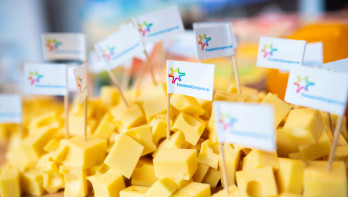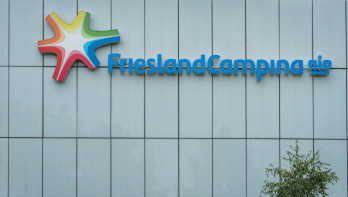Analysis Insights
Are FrieslandCampina and Milcobel a dream marriage?
The intended merger of FrieslandCampina and Milcobel brings together two national champions and is presented by both companies as a dream marriage. Even more: together they will further strengthen their success and attract more dairy farmers while delivering additional good performances.
There is a lot of belief in the new combination of cooperatives. However, merging two entities is not automatically a success story. Friesland Foods and Campina performed exemplary in the early years of their existence, but then things started to decline. On the other hand, DMK, the merger of Nordmilch and Humana, has always struggled to become more than the sum of its parts. There are more examples to mention.
Love at first sight?
The announced merger is also not a love at first sight. FrieslandCampina and Milcobel first looked elsewhere, although they no longer talk about it. Yet they eventually ended up together, and that could still lead to something beautiful.
There are also urgent reasons to make something together. It may not be a 'shotgun wedding,' but FrieslandCampina must not fall below a critical size of 9 billion kilograms of milk, otherwise the company will lose many scale and other associated advantages it currently has. For example, in terms of financing. With Milcobel, it has an additional buffer of 900 million kilograms, roughly adding up to 9 billion. That buffer seems sufficient, but is much needed because the decline in dairy farming is not over yet. Just consider the expected consequences of this week's new nitrogen rulings by the Council of State (Amercentrale and Rendac).
Even tougher situation
Milcobel is in a similar situation regarding critical mass, and perhaps even in a more difficult position. It has been steadily losing dairy farmers in recent years, especially larger ones. Meanwhile, the company has not been performing optimally for a while and has been constantly restructuring. It faced the consequences of a listeria contamination last year, a malfunctioning distribution center, and announced further reorganizations last spring to reduce costs, including the closure of powder towers. The company struggled with these issues, as evidenced by the forced departure of CEO Nils van Dam.
Ysco to private equity
Due to ongoing financial pressures, the golden egg-laying hen was also taken to the poultry shop: Ysco was sold to private equity. The proceeds are for debt reduction. Initially, loyal members were promised an additional reward from the proceeds, but for now, the additional payment remains limited to 50 cents per 100 liters of milk.
FrieslandCampina is set to do better. In August, around 70 cents had already been reserved. FrieslandCampina is also undergoing restructuring and announced the closure of two factories, but seems to have things reasonably in order for the time being. With such a company, the members of Milcobel probably would like to merge.
Even exchange
It remains to be seen whether this will be a fair exchange. There is a difference in cooperative contribution. To become a member of FrieslandCampina, one must bring €5.00 per 100 kilograms of milk and buy membership certificates for €8.00 per 100 kilograms. This can be done with deferred payment. At Milcobel, the capital contribution is capped at €7.50 per 100 liters of milk, but some additional capital may likely need to be provided. The weak capital of Milcobel was initially a hurdle for a merger, as reported.
Arla in between
A small hitch in the merger is the long-term agreement on whey processing that Milcobel concluded with Arla in December 2022. Cheese whey is currently in high demand for the production of high-quality whey powders, such as WPC80. Milcobel did not have its own facilities for this, but decided to collaborate with Arla to add value to its own whey. A good initiative that could generate up to €1.00 per 100 liters of milk for the members, but first the new ultrafiltration in Kallo, costing around €18 million, needs to be recouped. And FrieslandCampina would probably have wanted the Milcobel whey as well.
Other champions
Ultimately, these are all surmountable hurdles, but the merger with Milcobel for FrieslandCampina can hardly be a 'free' merger. Costs will need to be incurred to optimize the collaboration between the two companies, and these costs will almost certainly weigh more on FrieslandCampina than on Milcobel. The former is simply larger and wealthier. This will almost certainly not be explicitly stated.
The Belgian dairy industry must accept the loss of a national champion and get used to a new national champion: the Walloon Laiterie des Ardennes. Together with Inex, these will soon be the only dairy companies that will remain truly Belgian-owned. They account for approximately 1.6 billion of the 4.2 billion liters of Belgian milk. The rest is in Dutch, French, or Scandinavian hands.


